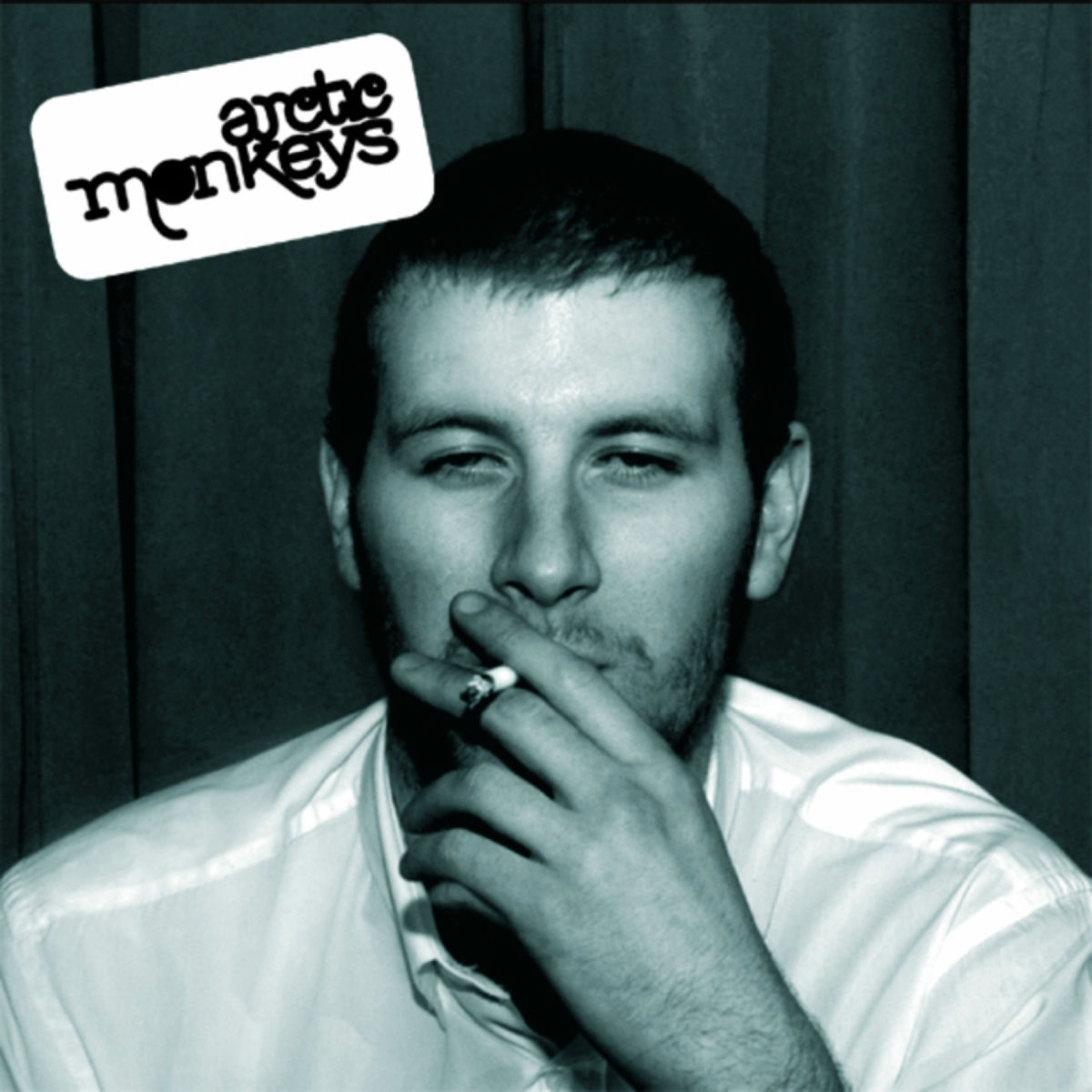- 4AD
- 2011
It was the first great transformation of St. Vincent. Gone were any remnants of twee Brooklyn indie affectations. Gone were fussy orchestral arrangements. Gone were the harsh contrasts between the light and the dark. This was a new St. Vincent, one of mutated sounds, glassy atmospherics, and narcotic haze. Mechanistic, icy, otherworldly -- and, for the first time but not the last, transcending any narrative or music scene or associations. When Strange Mercy came out 10 years ago today, St. Vincent became an entity unto herself, beginning a course that would make her one of the iconic musicians of the 2010s for her ability to overhaul aesthetic and concept almost entirely from album to album.
After touring behind 2009's Actor, Clark decamped to Seattle to try and work on a followup. She had to get away from the distractions of her normal life, and the repetition of writing at her apartment. In Seattle, she holed up in an Ace Hotel and a studio rented from Death Cab For Cutie. In an interview with the AV Club, she called it a "loneliness experiment," a different kind of creative process that allowed her to crack open the songs differently, even if there were days where she was dying to be in a place where she could meet a friend for drinks. Then she rejoined producer John Congleton; they'd already discussed cutting away the orchestration of Actor and focusing on the foundations of the songs. That's interesting to consider. The songs of Strange Mercy indeed wound up being generally strong, but it's also an album trading in adventurous textures and foreign sounds -- not at all a back-to-basics exercise, but something that imploded pre-existing notions of St. Vincent and achieved a synthetic art-rock style that was, in that moment, all her own.
The first time I heard Strange Mercy was during a semester abroad in Shanghai. If memory serves, I had to have my dad buy the CD -- because I still wanted everything on CD back then -- and email me the files, because you couldn't access the album in China. The day I got it was one of the first mercifully cool days after the brutal heat and rain season that had greeted us in our initial days abroad. A few of us had planned to walk across town, and I threw in my headphones to hear the St. Vincent album I'd been anticipating for months. The smog, the mist, the now radically unfamiliar chill in the air, the imposing and often faceless towering buildings in Shanghai -- not unlike the abandoned city in Inception, despite the perpetually clogged foot traffic on Shanghai's street level -- these were all perfect for the silver dreamscapes of Annie Clark's new album. Here was a new atmosphere for St. Vincent. The curlicue woodwinds and haunted Disney fantasias of Actor had been replaced with a strung-out, artificial world, one where Clark could begin to truly show the scope of her sonic ambition.
While I remember being taken with the airy-yet-claustrophobic mood of the album and how all the melted plastic guitars were a sort of digital psychedelia, the perceptions of Strange Mercy at the time were interestingly divided. Much was made of it being an altogether darker and more aggressive collection than the preceding St. Vincent album, ones that could seem precious but then let something sinister crawl up from within. There seemed to be a narrative forming around Clark that was partially in response to a whole lot more people having seen her get loud onstage -- and her then-recent seething Big Black covers in particular. This being 10 years ago, a lot of it still skewed towards awe at "the pretty brunette who can shred," this artsy yet vicious new guitar hero for the indie generation. It wasn’t uncommon for Clark to be explaining this stuff. "Physically, I'm a very demure-looking person," she told Pitchfork at the time. "But I certainly have as much aggression or anger as the next person, and that's got to come out somehow."
In the studio, whether on Strange Mercy or since, Clark has still never approached the frothing live performances writers were referencing, the bugged-out "Your Lips Are Red" renditions and such. But Strange Mercy did have, if not an overbearing darkness, more prominent threads of depression and dislocation. It was there in the very beginning, in "Chloe In The Afternoon," with strangled guitar distortion, a stuttering beat, and Clark's voice choking as she reached for the sky in the chorus -- all perhaps functions of the BDSM fantasy the song sketched out, but also fragmented building blocks establishing the eerie world of Strange Mercy. There were other moments like that, too: The apocalyptic crash of the chorus in "Cheerleader," the medicinal fog of "Surgeon," or the reflective and disappointed "Champagne Year," meant to evoke the would-be-auspicious golden year Clark had recently exited. (Clark and I share a birthday of Sept. 28, and my golden year also sucked. Maybe the rules are different for Libras.)
The way that darkness manifested on Strange Mercy never struck me as aggression finally rearing its head in the music of St. Vincent. Rather, her interpretation given to The Guardian always rang truer: that the album was about anesthetizing pain, trying "to be a whole person." The oft-referenced lyric at the time was the chorus from Strange Mercy's lead single, a quote lifted from Marilyn Monroe: "Best finest surgeon, come cut me open." It was a plea to be transformed, to be fixed, to be released. You could find dissatisfactions with ideas of St. Vincent -- the imprisoned fake-wife/mother narrative of the "Cruel" video, lines like "I've played dumb/ When I knew better/ Tried so hard/ Just to be clever" in “Cheerleader" -- and you could very much hear it in the way Clark warped sounds beyond recognition. Like in order to rearrange human struggles, she also had to push to sounds well beyond the organic.
This was always what stood out to me most about Strange Mercy. There were plenty of memorable and intoxicating melodies, but then there were instrumental passages that felt like the true catharsis. The garbled guitar freakout of "Surgeon," the ice plinks of the title track giving way to that wistful-alien-synth. In "Dilettante," an otherwise solid entry in the album, she broke into an incredible outro of squelched guitars and synths that provided one of Strange Mercy's most emotive passages. All of it came together into a sound that felt like some kind of technological alchemy, celestial sounds rendered in crisp ones and zeroes.
At the time, there were also insinuations that Strange Mercy was more personal thematically. Putting aside that we now know this to be, at best, a loaded and veiled claim when it comes to Clark's last several albums, it's also murky looking back on Strange Mercy all these years later — particularly with the hindsight of this year's Daddy’s Home closing an arc that began back in 2011. At the time, Clark was vague about the depression that influenced the album. She spoke about how 2010 was this general hell year for her and seemingly lots of people around her. Given 2010 was the Year Of The Tiger, that gave Clark her resounding Strange Mercy closer.
The real meanings of that song and "Strange Mercy" remained oblique until some years later, when word leaked out that Clark's father had been sentenced to prison in late 2010 after being convicted of fraud, conspiracy, and money laundering. Now the lines "Oh, America can I owe you one?" and the title track’s climactic "If I ever meet the dirty policeman who roughed you up" registered differently alongside images of a "father in exile" and prison visits. Amidst the ambient depression of Strange Mercy and vague discussions of the Year Of The Tiger in interviews, Clark had a very real shockwave of familial trauma informing the album. Daddy’s Home picked up that story earlier this spring, just shy of 10 years after Strange Mercy, with Clark partially drawing on her father's release from prison. Strange Mercy is still very much its own emotional piece, standing alone from a very different time. But speaking purely in terms of artistic arc, Daddy's Home has also represented an unfortunate answer to what began on Strange Mercy 10 years ago.
As the '10s proceeded that Clark's first two albums increasingly felt like a prologue before she had arrived as herself, the shape-shifter. Each successive album had a new premise -- the near-future cult leader of St. Vincent, the dance inflections and dominatrix themes of Masseduction. We've now grown accustomed to Clark reimagining herself over and over. It was only with Daddy’s Home where her drive to constantly reinvent St. Vincent hit a wall, the first time she seemed to be looking backward instead of to a future only she could see, the first time transformation registered as cosplay.
None of that diminishes Strange Mercy as its own work -- it was still the great breakthrough, creatively and narratively. Many fans still seem to regard Strange Mercy as Clark's finest work, and they probably aren't wrong. (For my money, its only competition is Masseduction, a notion people tend to either whole-heartedly agree with or regard as a lunatic fringe contrarian take.) In its moment, it felt like a radical departure and definitive portrait of who St. Vincent really could be. In all the years that have followed and will follow, some of those St. Vincents will inevitably work better than others. But returning to Strange Mercy is enough to remind you why you believed in the first place, enough to remind you how visionary it could feel when Clark's latest transformation could completely awe you.







